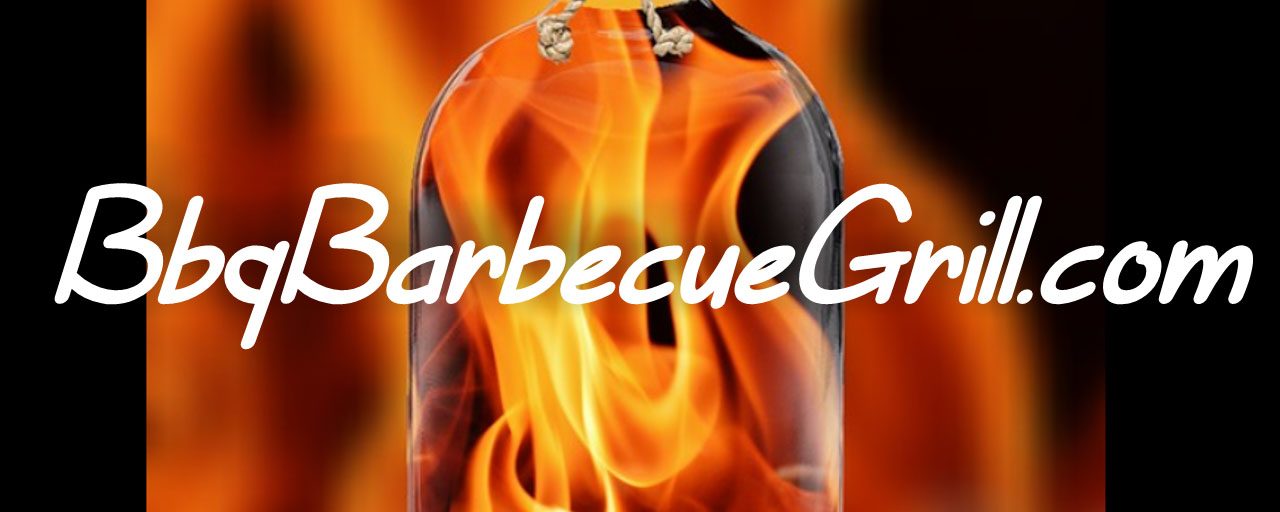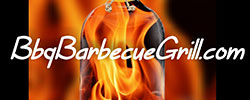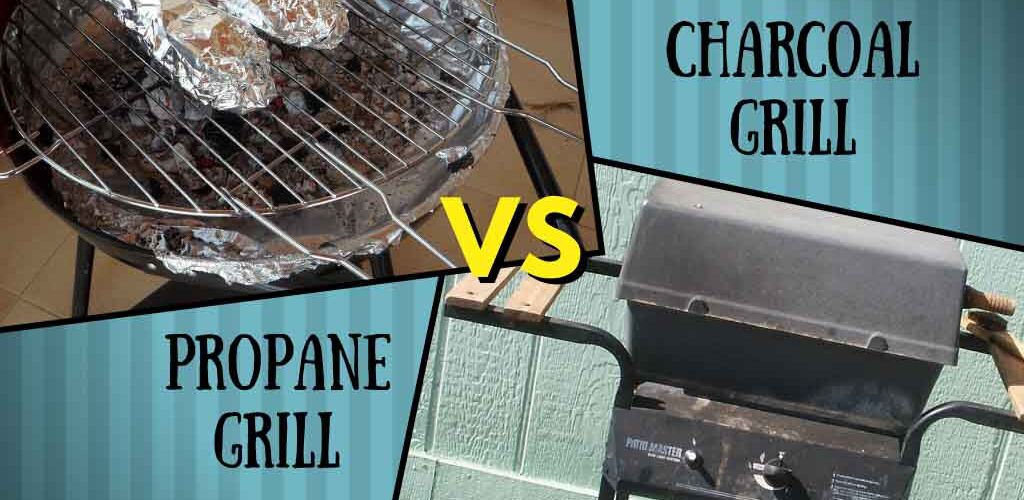Beginner grill-masters are at one point or the other faced with the age-old question: gas or coal? It seems that this is what most people get confused to get better results. And when they don’t know what’s right for them, they end up making a decision they regret later on.
Gas and charcoal grills are made for different categories of users. They have different temperature ranges, different cooking styles, and no doubt, different prices. We’ve jotted down all of the differences and have helped you make that decision.
Read on to learn more about propane grills vs. charcoal grills.
Differences between propane grills vs. charcoal grills
The differences between propane and charcoal grills lie in their mechanisms. A propane grill has separate tubes that supply to each burner. Each burner can be separately controlled and allows for a finer heat range. Some propane grills will even include side burners to cook side dishes while the main dish is left on the heat.
Charcoal grills, on the other hand, are a free-for-all. The flame is placed directly under the grate and is, for the most part, naked. Just place the food on the grate and hope it cooks evenly. These grills have minimal control, but they can reach extensive temperatures and smoke. And they are preferred for foods that require high heat searing.
Propane grill vs. charcoal grill – Health effects
If you’re grilling meat on high heat, you’re exposing yourself to carcinogenic compounds. Two compounds have come to light in terms of this: PAHs and HCAs. PAHs (Polycyclic Aromatic Hydrocarbons) are formed when fat drips from the heat. This fat is burned up by the heat source and rises to the food you’re cooking.
HCAs (Heterocyclic Amines) is released from red meat, seafood, and poultry when you cook them on high heat. Both of these compounds are highly carcinogenic and are linked to adverse health effects.
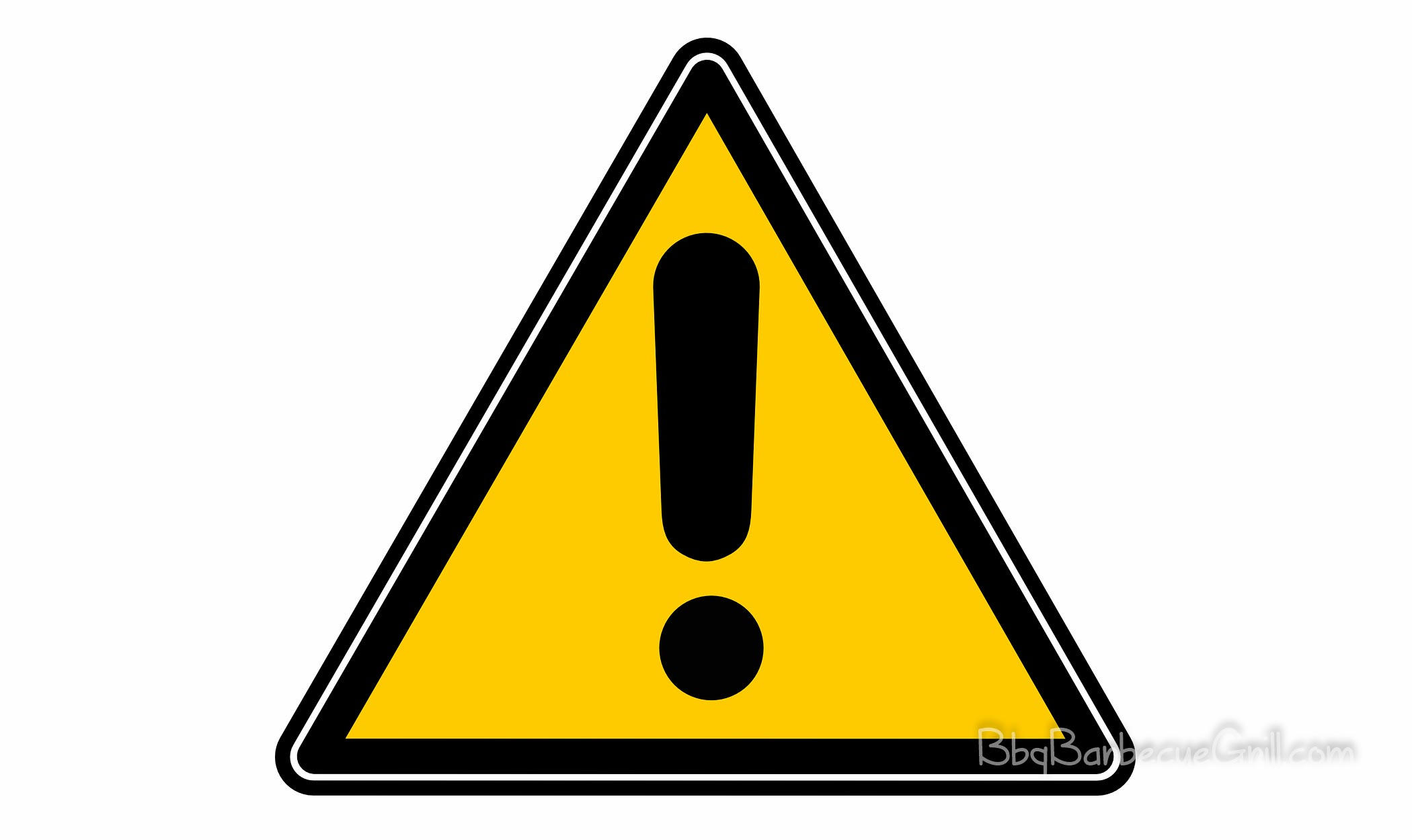
While both grills can create these compounds, they’re easier to manage on a propane grill. Propane grills allow you to control gas flow, and thus the temperature. So you can cook your food at a lower temperature, significantly cutting down on PAHs and HCAs.
Propane grill vs. charcoal grill – Safety
Now let’s talk about your safety. It should be obvious that charcoal grills are more likely to flare up and cause fires. That is because the heat source is more or less uncovered. That can burn not only your hand but also endanger the well-being of others. The last thing you want is a speck of hot ash getting loose and burning down everything in its path.
Propane grills are generally safer, but not the safest either. The gas tank, for instance, may acquire some holes through which the gas can escape. Perhaps the safest aspect of a propane tank is that the fuel source is contained. But once it does get out of its container, it can be just as deadly.
Propane tends to spread and, to be heavier than air, sticks close to the ground. The only precaution you can take here is doing regular checkups and keep the tank outside. It will immediately evaporate any leaking gas into the air.
Propane grill vs. charcoal grill – Taste
Now let’s get to the real deal. While both types of grills use an open flame, charcoal produces more smoke. That is the reason why it’s preferred for smoking food. And since fat tends to drip down and then flare up, your food is likelier to char. Charcoal is one of the best for high heat searing. They also let the meat soak and sear in its fat.
Gas grills, on the other hand, are suited for slow and steady cooking. They don’t generate sufficient smoke, but they do tend to create steam. This steam can help moisturize the meat when you’re not familiar with the smoke. Propane is also a good choice for fattier meat. You can control the temperature more, allowing for a wider range of barbecuing options.
Propane grill vs. charcoal grill – Temperature Control
Propane grills provide more control over the flame, usually by checking the flow of gas. It means you can grill at more specific temperatures. Yes, most gas grills only have ‘High,’ ‘Medium,’ and ‘Low’ settings. But this is much better than having to guess at the temperature of charcoal. Plus, some grills allow for more control, though those are questionable.
Charcoal doesn’t allow for enough temperature control. You have to constantly refuel the heat and prevent wind from knocking the flame out. Being open-flame of charcoal grills are more susceptible to environmental factors, such as rain and wind. Gas grills can fight the element pretty well, although rain may still get in.
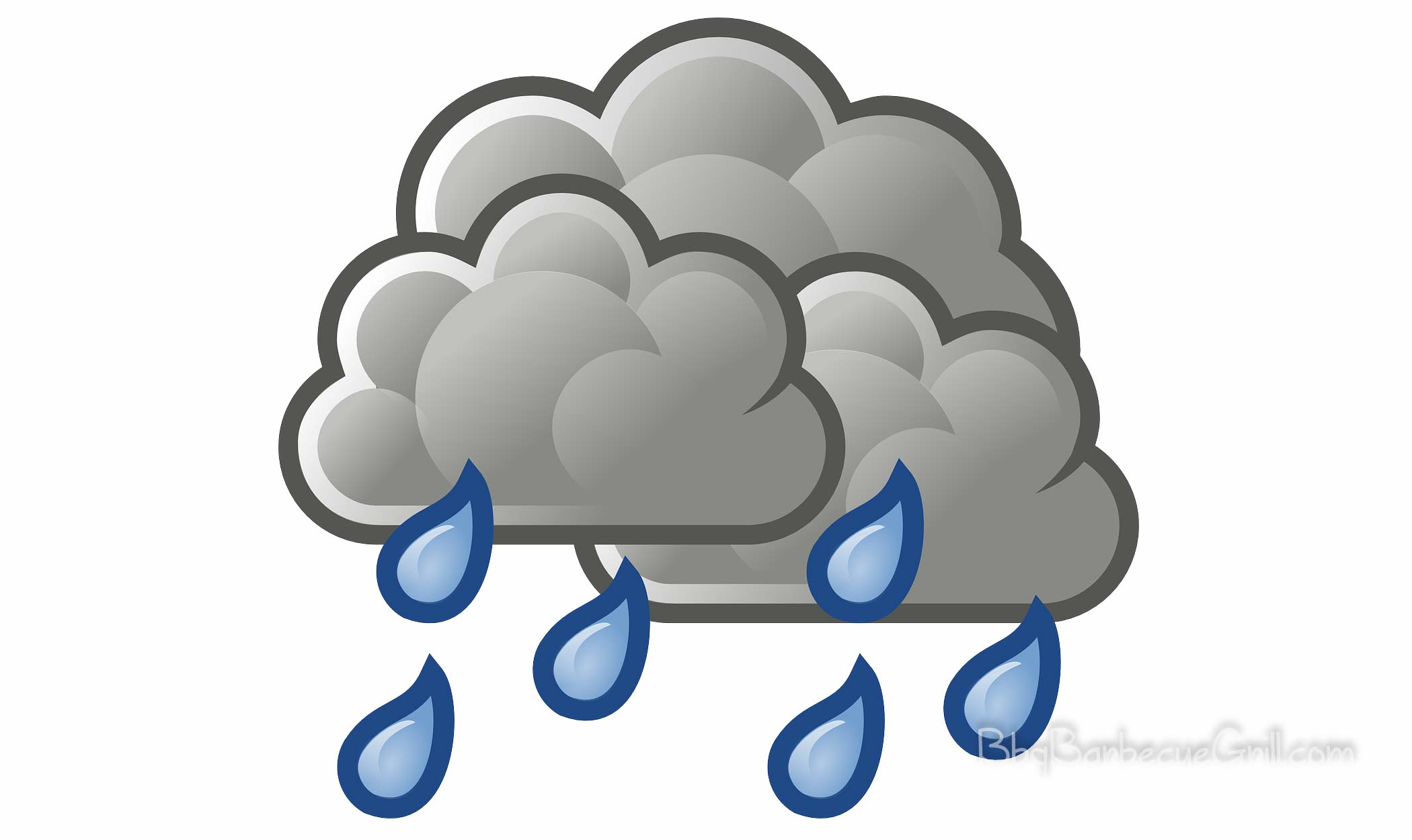
Cleanup and maintenance
Charcoal grills are the hardest to clean up. There are two main culprits here: melted fat and stubborn ashes. Charcoal cooks the meat at high temperatures, which means the fat drips to the bottom. The fat also sticks to the grill grates. The fat that melts and then freezes over is not easy to clean. And sometimes, you’ll need more than just a brush.
Moreover, charcoal creates smoke. This smoke can deposit on the grates as ash, or worse, creosote. The grate will require a few washes before all of the ash get cleaned off. As compared to that, propane grills have little to no fat deposits. And they don’t smoke much, resulting in a cleaner grate afterward.
What accessories should I buy with the grills?
You can’t just get a charcoal or gas grill and just fire it up. You’ll be needing a lot more than just the grills. Here’s a list of the accessories you can make use of:
Propane grill accessories
With a propane grill, you will need a propane tank. Be careful, as both butane and propane tanks are labeled as ‘LPG.’ So be sure that the LPG tank you are buying is propane unless your grill can handle both.
Many propane grills come with side burners. These direct the heat to a smaller, lower-powered cooking surface. Here you cook your sides such as salads, sauces, and seafood. This burner is getting power by a separate flame from the main flame. So you can adjust it without having to worry about the main flame.
You can also invest in a gas level indicator. That will show you the current level of gas in the tank, so you can refill it before you start the heat.
Charcoal grill accessories
Charcoal grills don’t come with many accessories that only they can use. But some are best used with them. These include all those fancy meat thermometers. With a gas grill, you can keep the heat in check. But you need the thermometers most with charcoal grills, as there’s no promise of what temperature you’re getting.
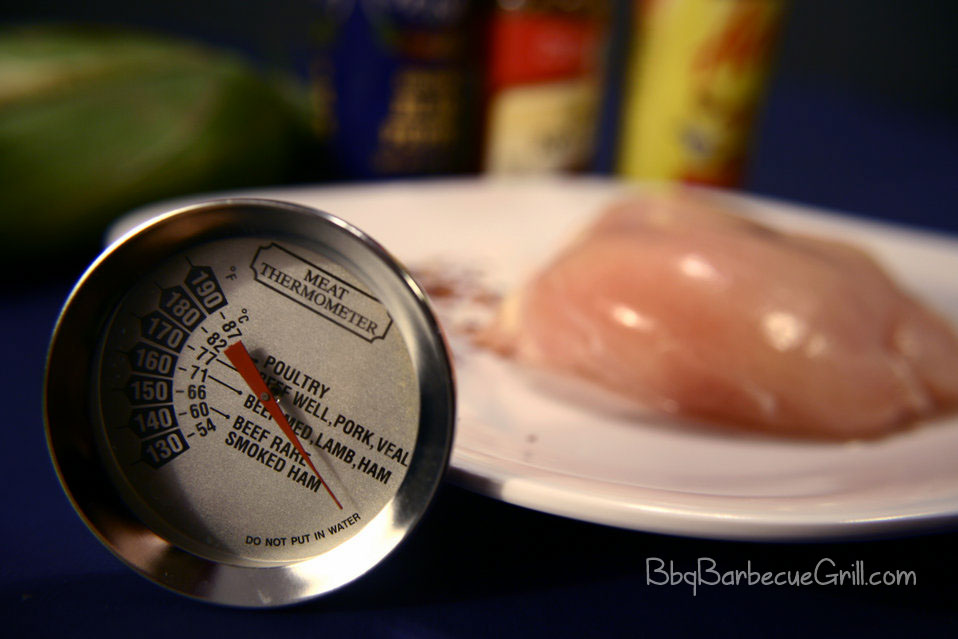
You can also invest in a hot case (place to keep your food warm). If you cook the meat at high heat, chances are you want it to stay hot. A hot case is great for locking the heat inside.
Unfortunately, you cannot use side burners, or any type of burner actually, with charcoal grills. They simply use an open flame.
Which grill is right for me?
After reading all that, it becomes evident that propane grills are better than charcoal ones. However, there is a reason why so many people choose charcoal over gas.
You should go for a gas grill if you:
- Prefer more control. Gas grills allow you to control the heat, albeit in very coarse increments.
- Don’t like to smoke. Propane grills don’t produce much smoke, which is good if you don’t prefer the smoky taste.
- Don’t cook at high temperatures. A gas grill usually cooks the food at a lower temperature.
- Prefer less pollution. Propane-powered grills do not generate smoke. It is a smart way to reduce your carbon footprint.
- Grill indoors. While outdoor grilling has a high preference, a propane grill doesn’t require as much ventilation as a charcoal grill.
- Prefer an easy cleanup. Propane grills don’t leave behind stubborn ash and creosote, and there’s lesser melted fat.
You should go for a charcoal grill if you:
- Cook at high temperatures. Charcoal grills can reach very high temperatures, which is essential for searing, charring, and smoking.
- Like to smoke your food. These grills generate much smoke and add a smoky taste to your food.
- Only grill outdoors. Charcoal grills are recommending for outside use only. They create too much smoke inside the house.
Conclusion
Charcoal and propane grills have their advantages and their disadvantages. Both have some amazing features and a market full of accessories. But only one is right for you.
Propane grills are better than charcoal grills in all respects, except high heat and smoking. That’s something you won’t get with a propane grill. But apart from that, propane grills have it all.
So consider the differences and decide which grill you want to buy. Trust us when we say that you won’t regret it.
